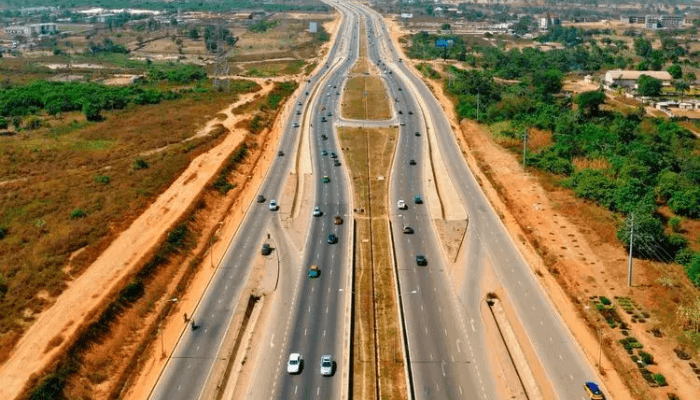The Independent Media and Policy Initiative (IMPI) has said that there are enough proof to support the federal government’s choice of HiTECH to construct the Lagos-Calabar coastal highway.
In a statement signed by its Chairman Niyi Akinsiju, Wednesday in Abuja, the think tank group said its study of the situation showed that all the claims by former Vice President Atiku Abubakar who sparked the controversy were off the mark and targeted at discrediting the project.
It added that aside from successfully handling the Bar Beach Shoreline protection, Hitech also has a history of constructing coastal highways with reinforced concrete outside of Nigeria.
IMPI said: “To establish Hitech’s fit into the capabilities to deliver on the coastal road contract, we made both discreet and open enquiries on the company’s credentials and contracts portfolio and records.
“We can assert, based on evidence garnered, that Hitech may pass as the only Nigerian company able to construct the coastal road as conceived. The only other company that may claim near capacity is the construction behemoth, Julius Berger Plc.
“But over the years, Hitech has shown a specialization in shoreline and coastal roads construction than Julius Berger. A typical reference in this regard was the Bar Beach shoreline contract awarded to the two companies at different times and how they performed therein.
“In June 2003, approval was given by President Olusegun Obasanjo for a permanent solution to the menace of the Atlantic Ocean, which threatened at that time to engulf major parts of Victoria Island, Lagos.
“Funds were released to Julius Berger and other contractors to put in place a permanent structure to stop the sea’s advance, which had reportedly ebbed major portions of the Ahmadu Bello Way. Three years later, by April 2006, the evaluation of the work done by Julius Berger showed that nothing had changed at Bar Beach.
“Analysts, at that time, submitted that: “Unless the ongoing restoration of the shoreline of the depleted Bar Beach in Victoria Island, Lagos is quickly completed, the likelihood of stopping what may be another Tsunami disaster, akin to the one that occurred in Asia in a not too long ago, is very slim.”
ALSO READ: Court adjourns Secondus’ case till Thursday
“In addition, the analysts averred that already, the ocean had claimed one lane of the ever-busy Ahmadu Bello Way, forcing motorists from both sides to make do with the single lane, which was also not spared of threats by the ocean. In 2009, the contract for the Bar Beach beach line management was awarded to Hitech Construction Company.
“Construction experts have since submitted that handing over the project to Hitech became a strategic move for Nigeria because not only did the company stop the flooding along the axis, it also reclaimed a lot of land and have turned the area into another Dubai in the name of our own, Atlantic City.
“Besides, Hitech has a strong presence in countries of the West African region. In Togo, the company is responsible for the rehabilitation of the National Route NR 14 – from Sokodé to the Benin border, that country’s 85 kilometres coastal road. In Benin Republic, Hitech is constructing the 12.5 kilometres Cotonou Fisheries Road Development Project, another coastal road.”
The policy group also insisted that a cost analysis of road projects similar to the Lagos-Calabar highway in some parts of the world showed that the cost of the the project was appropriate.
“We note that there is no unified standard pricing template for the cost of building a kilometre of road anywhere in the world. The realities of road building have much to do with a number of variables: location, terrain, type of construction, number of lanes, lane width, surface durability, and the number of bridges, to name a few.
“Yet, for the purpose of engagement, we reviewed some cost estimates in some other countries to establish the context of fraud or otherwise that Waziri Abubakar is trying to throw up.
“To build a 2-lane road of 12 metres wide of each lane with no bridges in states of North Eastern United States of America is $3.34m per km (when converted to Naira using the N1200/$ adopted by Umahi, it comes to N4.08bn per km) while same 2-lane road in South Eastern USA with no bridges is $ 3.78m per km (N4.53bn per km)
“According to the Texas Department of Transportation, the average cost of building a concrete road in rural areas is around $2.5m per mile, while in urban areas it can cost upwards of $5 m per mile.
“In California, the estimated cost of building a concrete road ranges from $3 million to $6 million per mile, depending on the location and other factors. In Australia, average road project costs were around $5.1m (N6.12bn) per lane kilometre in 2017.
“But in Bangladesh, according to the World Bank, the estimated cost of construction is $6.6m (N7.92bn) per kilometre for the Rangpur-Hatikumrul highway, $7m (N8.4bn) per kilometre for Dhaka-Sylhet highway, $11.9 million (N14.28 billion) per kilometre for Dhaka-Mawa highway. This underscores cost differentials in road construction because of peculiarities in terrains.
“These figures are far higher than the N4.329 billion per kilometre of 10 lanes Coastal Road with very peculiar terrains that Umahi says Hitech has commenced construction of.
“For clarity, a technical analysis of the features of the road will suffice: The Lagos-Calabar Coastal Road is designed to be 10 lanes with a total pavement of 59.2 metres with 100 metres corridor. Of this corridor, there will be five lanes on the right and five lanes on the left. This comes with a 25-metre train track.”
The policy think tank added that the federal government deserves commendation for reducing the cost of the project to N4.329bn per km from the N8.52bn/km in the initial design for a four-lane Lagos-Calabar highway by the Niger Delta Development Commission (NDDC).
